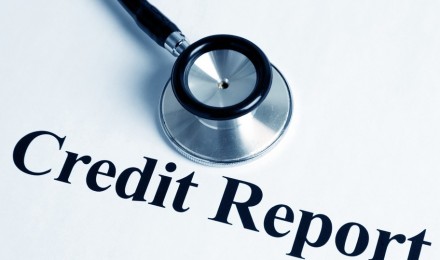After the decision to file bankruptcy, you may feel ashamed, embarrassed and pray that nobody learns of this situation. These emotions are perfectly normal. But rather than beat yourself up over your past mistakes, view this as your opportunity to start over and make better financial decisions.
Rebuilding your credit score is the only way to recover after bankruptcy. But given the fact that a bankruptcy can take as much as 250 points off your credit score, who in their right mind will take a chance with you?
Okay, so you can’t walk into any bank and apply for a loan or credit card. However, credit after bankruptcy isn’t a far off dream. Many banks issue credit cards to people who need to rebuild or establish a credit history – it’s all about knowing where to look.
First Progress Platinum Select MasterCard Secured Credit Card
With an annual fee of only $39 and a regular APR of 14.99%, the First Progress Platinum Select MasterCard is an affordable option if you’re looking to rebuild your credit after bankruptcy. Submit a fully-refundable security deposit between $300 and $2,000 and receive a credit limit of equal value. And because this credit card reports to the three major bureaus, make timely payments every month and you’re a step closer to better credit. Sign up for online account management and access your account 24 hours a day, seven days a week.
Can’t seem to qualify for an unsecured credit card? Maybe you’re applying in all the wrong places. Whether you have bad credit or no credit, the CapitalOne Secured MasterCard can put you on the path toward recovery. This credit card is accepted at millions of location, plus you’ll improve your credit faster with regular reporting to the three major credit bureaus. The annual fee is $29 and the regular APR is 22.9%.
Secured Visa from Merrick Bank
After a bankruptcy, you may settle for a prepaid credit card. Unfortunately, this card isn’t going to help your credit score. There is a better option, and if you apply for the Secured Visa from Merrick Bank, you can receive a secured credit line up to $3,000. There is no processing or application fees, which is rare for secured credit cards. Your monthly performance is reported to all three credit bureaus. Manage your account responsibly and you may be eligible for credit limit increases. The annual fee is $36 and the regular APR is 17.45%.
Getting this credit card only requires a $250 minimum security deposit, and with this deposit you’re not only opening a credit card account, but also a two-year certificate of deposit. You can reestablish your credit all while earning interest on your deposit. Enjoy a low regular APR of 9.90%. The annual fee is $35.
Centennial Classic Credit Card
Maybe coming up with a $250 or $300 security deposit is a stretch. There is another option. With the Centennial Classic credit card, it only takes a $150 security deposit to receive a $300 credit limit. The APR is a bit higher at 36%, and there’s a $75 annual fee the first year, $45 every year thereafter.
After the decision to file bankruptcy, you may feel ashamed, embarrassed and pray that nobody learns of this situation. These emotions are perfectly normal. But rather than beat yourself up over your past mistakes, view this as your opportunity to start over and make better financial decisions.
Rebuilding your credit score is the only way to recover after bankruptcy. But given the fact that a bankruptcy can take as much as 250 points off your credit score, who in their right mind will take a chance with you?
Okay, so you can’t walk into any bank and apply for a loan or credit card. However, credit after bankruptcy isn’t a far off dream. Many banks issue credit cards to people who need to rebuild or establish a credit history – it’s all about knowing where to look.
First Progress Platinum Select MasterCard Secured Credit Card
With an annual fee of only $39 and a regular APR of 14.99%, the First Progress Platinum Select MasterCard is an affordable option if you’re looking to rebuild your credit after bankruptcy. Submit a fully-refundable security deposit between $300 and $2,000 and receive a credit limit of equal value. And because this credit card reports to the three major bureaus, make timely payments every month and you’re a step closer to better credit. Sign up for online account management and access your account 24 hours a day, seven days a week.
Can’t seem to qualify for an unsecured credit card? Maybe you’re applying in all the wrong places. Whether you have bad credit or no credit, the CapitalOne Secured MasterCard can put you on the path toward recovery. This credit card is accepted at millions of location, plus you’ll improve your credit faster with regular reporting to the three major credit bureaus. The annual fee is $29 and the regular APR is 22.9%.
Secured Visa from Merrick Bank
After a bankruptcy, you may settle for a prepaid credit card. Unfortunately, this card isn’t going to help your credit score. There is a better option, and if you apply for the Secured Visa from Merrick Bank, you can receive a secured credit line up to $3,000. There is no processing or application fees, which is rare for secured credit cards. Your monthly performance is reported to all three credit bureaus. Manage your account responsibly and you may be eligible for credit limit increases. The annual fee is $36 and the regular APR is 17.45%.
Getting this credit card only requires a $250 minimum security deposit, and with this deposit you’re not only opening a credit card account, but also a two-year certificate of deposit. You can reestablish your credit all while earning interest on your deposit. Enjoy a low regular APR of 9.90%. The annual fee is $35.
Centennial Classic Credit Card
Maybe coming up with a $250 or $300 security deposit is a stretch. There is another option. With the Centennial Classic credit card, it only takes a $150 security deposit to receive a $300 credit limit. The APR is a bit higher at 36%, and there’s a $75 annual fee the first year, $45 every year thereafter.







